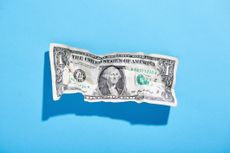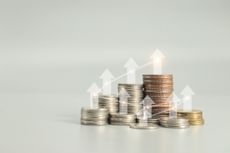Capital Gains Tax Exclusion for Homeowners: What to Know
The IRS capital gains home sale exclusion can be a valuable tax-saving tool if you are eligible.


As a homeowner, you may have concerns about paying capital gains tax when you decide to sell your home. Luckily, there is a tax provision known as the "Section 121 Exclusion" that can help you save on taxes following a home sale.
In simple terms, this capital gains tax exclusion enables homeowners who meet specific requirements to exclude up to $250,000 (or up to $500,000 for married couples filing jointly) of capital gains from the sale of their primary residence. This means that if you sell your home for a gain of less than $250,000 (or $500,000 if married, filing jointly), you will not be obligated to pay capital gains tax on that amount.
However, there are certain criteria you must meet to qualify for the home sale exclusion. There are also several exceptions to the 121 exclusion rules. Here is more of what you need to know to help determine whether you qualify.

Sign up for Kiplinger’s Free E-Newsletters
Profit and prosper with the best of expert advice on investing, taxes, retirement, personal finance and more - straight to your e-mail.
Profit and prosper with the best of expert advice - straight to your e-mail.
Avoiding capital gains tax: 121 Home Sale Exclusion requirements
Primary Residence: You must have owned and used the home as your primary residence for at least two of the five years leading up to the date of the sale. The IRS allows you to have only one primary residence at a time, and the agency uses various factors to determine whether a home qualifies as a primary residence. Notably, however, the two years don't have to be a consecutive, single block of time during the five years.
Frequency: You can only claim this exclusion once every two years. So, if you have already excluded gains from a previous home sale within the last two years, you will need to wait before you can claim it again.
Eligible Gains: The exclusion applies only to gains from your home's sale, not losses. Additionally, any portion of the profit exceeding the $250,000/$500,000 limit will be subject to capital gains tax.
Note: It's important to keep detailed records of your home sale, including the purchase price, any improvements made to the property, and expenses. These records will help you accurately calculate your capital gains and determine if you qualify for the exclusion.
Exceeding the Limit: If your profit exceeds the exclusion limit, you will need to pay capital gains tax on the amount that surpasses the limit. For example, if you are single and your profit is $300,000, $50,000 of that profit ($300,000 - $250,000) would be subject to capital gains tax.
In that case, the tax rate you pay on the excess profit depends on your income and whether the gain is short-term or long-term. Generally, long-term capital gains tax rates are lower than ordinary income tax rates.
Home sale exclusion exceptions
As mentioned, there are several exceptions to IRS home sale exclusion rules. For example, if you are transferring a home to a spouse or ex-spouse the IRS doesn’t consider that to be a gain or a loss.
- Other exceptions to the rules apply in situations involving U.S. military service members or where the primary home sale is a factor in separation, divorce, or death of a spouse.
- Situations involving vacant land, destroyed homes, like-kind exchanges, or business or rental income generally trigger different tax rules, requirements, and tax treatment.
For more information on these and other situations, see IRS Publication 523.
What about a partial home exclusion?
If you don't meet the eligibility test for the maximum home sale exclusion, you may still qualify for a partial exclusion of gain. For example, according to the IRS, you can meet the requirements for a partial exclusion if the main reason for your home sale was a change in workplace location, a health issue, or an unforeseeable event. For more information on how partial home exclusions are calculated, you can find resources on IRS.gov or consult with a qualified and trusted financial advisor.
Remember that, in any case, certain factors, such as any depreciation claimed for the home, may affect capital gains tax. It is also important to consider any state or local taxes that may apply to the sale of your home.
However, consulting with a tax professional is a good idea if you need clarification on your eligibility or help navigating the complexities of tax laws. They can provide personalized advice based on your situation and ensure you take full advantage of any available tax benefits.
Related

To continue reading this article
please register for free
This is different from signing in to your print subscription
Why am I seeing this? Find out more here
Get Kiplinger Today newsletter — free
Profit and prosper with the best of Kiplinger's advice on investing, taxes, retirement, personal finance and much more. Delivered daily. Enter your email in the box and click Sign Me Up.

As the senior tax editor at Kiplinger.com, Kelley R. Taylor simplifies federal and state tax information, news, and developments to help empower readers. Kelley has over two decades of experience advising on and covering education, law, finance, and tax as a corporate attorney and business journalist.
-
 The Taxes That Come out of Your Paycheck
The Taxes That Come out of Your PaycheckPayroll Tax Your take-home pay is often less than expected due to several payroll tax withholdings you need to know.
By Kelley R. Taylor Last updated
-
 Why You Should Invest in Commodities
Why You Should Invest in CommoditiesThese portfolio diversifiers are in a long-term uptrend and show why you should invest in commodities
By Anne Kates Smith Published
-
 The Taxes That Come out of Your Paycheck
The Taxes That Come out of Your PaycheckPayroll Tax Your take-home pay is often less than expected due to several payroll tax withholdings you need to know.
By Kelley R. Taylor Last updated
-
 Seven States Where Gas Tax Increased July 1
Seven States Where Gas Tax Increased July 1Gas Taxes Since July has arrived, drivers in several states are facing a gas tax hike.
By Kelley R. Taylor Last updated
-
401(k) Withdrawal Penalty Rule Changes for 2024
Tax Rules More people are taking early emergency withdrawals from retirement savings accounts. New rules might offer some relief.
By Kelley R. Taylor Last updated
-
 Summer Activities That Can Impact Your Taxes
Summer Activities That Can Impact Your TaxesTax Planning Certain summertime activities might help lower your taxable income.
By Kelley R. Taylor Last updated
-
HSA Contribution Limit Rising Again for 2025
Health Savings Contribution limits matter when it comes to maximizing your tax-advantaged health savings account.
By Kelley R. Taylor Last updated
-
Three IRS Tax Deadlines for June 17
Tax Deadlines There are some important June IRS tax deadlines you shouldn’t overlook.
By Kelley R. Taylor Last updated
-
New Colorado Tax Credit Offers Two Years Free College: What to Know
Tax Credits Thanks to a new tax credit, some Coloradans will soon have access to two years of free college tuition.
By Kelley R. Taylor Published
-
Roth 401(k) Changes: What You Should Know for 2024
Retirement Savings Key changes to Roth 401(k) account rules may affect your tax planning and retirement savings.
By Kelley R. Taylor Last updated




